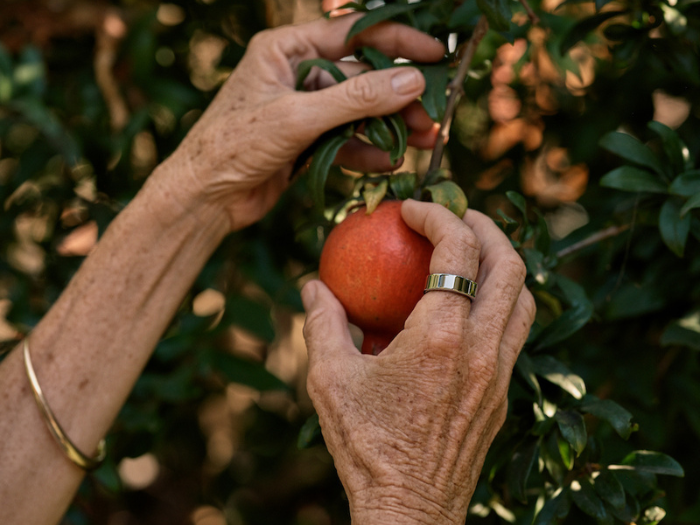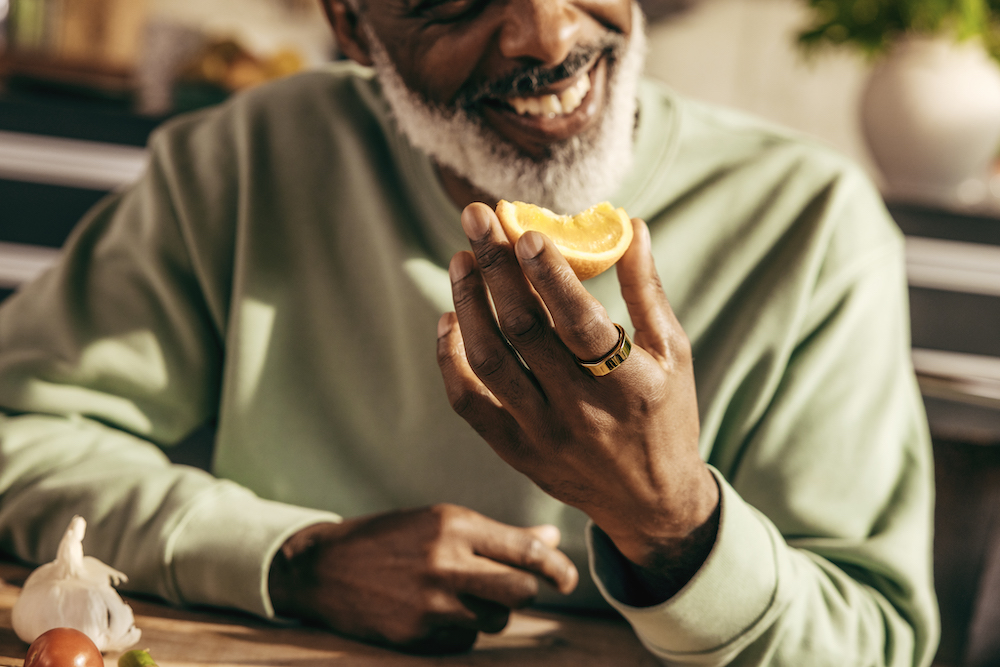Aging is inevitable, but aging poorly isn’t.
Many people experience memory decline and physical weakness as they get older, often due to reduced engagement in certain activities and healthy habits.
However, this doesn’t have to be your story. In fact, it’s very possible to extend your healthspan—the period of life spent in good health, free from chronic disease and disability.
As a neuroscientist and brain optimization consultant, I’m here to share tips on preventing physical and cognitive decline, as well as show how Oura Ring can help you stay accountable. What you do today and continue doing tomorrow can significantly impact your healthspan.
5 Proven Ways to Age Well
1. Boost BDNF through habits like meditation and getting sunlight.
Brain-derived neurotrophic factor (BDNF) is a type of protein which enhances brain regions linked to pain tolerance, self-awareness, memory, attention, emotional control, and happiness.
Essential for your overall well-being, BDNF also promotes new neuron growth, strengthens existing ones, and prevents cell death. However, as you age, BDNF levels naturally decrease.
The good news: Simple, yet science-backed habits such as meditating and getting sunlight can effectively boost your levels of BDNF.
Aim to meditate a few times per week and/or expose yourself to about 10-20 minutes of sunlight per day.
RELATED: The Benefits of Morning Sunlight & How to Make it a Habit
| Member Tip: Try a guided meditation in the Oura App’s Explore content, and get real-time feedback on how your HRV, resting heart rate, and more respond after the session. |
2. Exercise, with a focus on cardio and strength training.
One of my clients, Alice, noticed it was taking her longer to recover from exercise than it used to—an all too common experience.
As we age, we lose 3 to 8% of our muscle mass every decade after age 30—that is, unless we actively work to maintain it.
According to science, regular physical exercise can reduce and even reverse signs of aging by altering gene expression and increasing BDNF levels.
Incorporate cardio, aerobic exercises, and strength training into your routine. Starting an exercise routine at any age is beneficial, but the sooner, the better.
| Member Tip: Oura estimates your Cardio Capacity (or VO2 max), which is a measure of cardiovascular fitness. Exercise is a highly effective way to improve this metric. Using Oura, take a walking test to see where you are now, and keep an eye on how your Cardio Capacity improves. |
3. Eat a Mediterranean diet.
Diet plays a crucial role in longevity. Research shows that a Mediterranean diet reduces the risk of all-cause mortality, especially heart disease.
It’s also important to avoid processed foods. Research has found that an 10% increase in ultra-processed foods correlates with a 14% higher risk of all-cause mortality.
So what can you eat? Lots! Focus on fresh, whole foods including:
- Fruits
- Vegetables
- Legumes
- Nuts and seeds
- Fish and seafood
- Poultry and eggs
- Unprocessed red meat
- Olive oil
- Whole grains
- Limited dairy
- Fermented foods
RELATED: 8 Foods and Drinks For Better Sleep (And 4 To Avoid!)
4. Avoid the “three S’s.”
If there’s one thing to remember, it’s the “three S’s”—and focus on reducing their presence in your life as much as possible. The three S’s include:
- Stress
- Sugar
- Social isolation
First, let’s talk about stress. While not all stress is bad, some types of stress have undeniably negative effects on our overall health and well-being. Chronic, or long-term, stress can be especially detrimental, as it’s linked to a litany of health conditions, such as heart disease, obesity and metabolic syndrome, type 2 diabetes, and arthritis. Find strategies to manage stress—and how Oura can help—here.
Sugar (as delicious as it is) is associated with inflammation, cardiovascular disease, cancer, and other contributors to accelerated aging.
Finally, socializing with like-minded friends isn’t just fun; it also keeps your brain active. The social brain hypothesis suggests our brains evolved complexity to manage social systems. Lack of social engagement can lead to cognitive decline, while social interaction stimulates multiple brain areas and systems, keeping them active and preserving mental faculties. Maintain an active social life to keep your brain sharp.
5. Keep up with your favorite brain games.
Finally, invite some competition into your life! Cognitively demanding tasks like puzzles, board games, musical instruments, and dancing can help preserve cognitive capacity.
One study of 469 people aged 75+ found these activities lower dementia risk by increasing cognitive reserve—or the connections between brain regions that buffer against aging.
These activities should be lifelong habits, not something to start at a specific age, to help maintain mental engagement and cognitive health.
Use it or Lose it
In sum, remember that it’s in your power to combat aging and cognitive decline. Just be sure to continue engaging in healthy habits such as the above to keep you living healthier, for longer.
Don’t give into aging—it’s more in your control than you may think!
| Member Story: Meet Julie D., a 56-year-old Ironman champion who counts on Oura to help her stay active and healthy in her 50s and beyond. |












